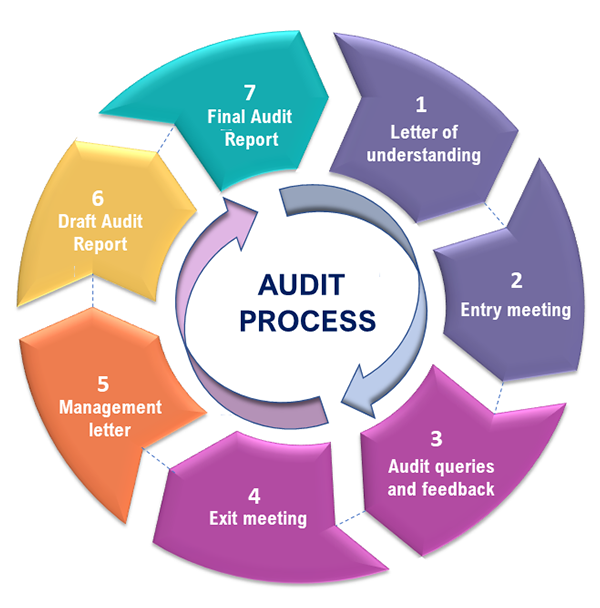
User Intent:
Users searching for “Features of Auditing” aim to understand its key characteristics, applications, benefits, and limitations. This article provides a detailed and structured guide, ensuring clarity for students, professionals, and business owners.
Introduction
Auditing is a crucial function in business and finance, ensuring accuracy, compliance, and reliability of financial records. Whether for corporations, small businesses, or government institutions, auditing helps maintain transparency and trust. This article explores the essential features of auditing, its applications, benefits, limitations, and a comparative table for better understanding.
Definition of Auditing
Auditing is the systematic examination and evaluation of financial records, transactions, and internal controls to ensure compliance with accounting standards and legal requirements. It aims to detect errors, fraud, and discrepancies in financial statements, providing stakeholders with an accurate financial picture.
Features of Auditing
The primary characteristics that distinguish auditing include:
- Systematic Process – Auditing follows a structured and step-by-step methodology, ensuring thorough verification of financial data.
- Independence – Auditors must be unbiased and independent to provide an objective assessment.
- Evidence-Based Approach – Auditors rely on documented proof, financial records, and internal reports for verification.
- Legal Compliance – Auditing ensures that organizations comply with tax laws, corporate regulations, and financial reporting standards.
- Detection and Prevention of Fraud – Helps in identifying fraudulent activities and suggests measures to prevent them.
- Verification of Accuracy – Ensures that financial statements present a true and fair view of an organization’s financial position.
- Use of Professional Judgment – Auditors analyze reports and interpret findings using experience and expertise.
- Periodicity – Audits are conducted at regular intervals, either annually, quarterly, or as required by law.
- Confidentiality – Auditors must maintain confidentiality and protect sensitive financial information.
- Reporting – A final audit report is provided, summarizing findings and recommendations.
Application of Auditing
Auditing is applicable in various fields, ensuring accuracy, accountability, and legal compliance in different industries:
1. Corporate Sector
- Ensures accurate financial reporting for stakeholders.
- Helps companies comply with tax and regulatory requirements.
2. Government Institutions
- Auditing ensures proper use of public funds.
- Helps prevent mismanagement and corruption in government agencies.
3. Banking and Financial Institutions
- Ensures adherence to banking regulations and financial laws.
- Prevents financial fraud and ensures investor trust.
4. Non-Profit Organizations
- Ensures proper utilization of donations and grants.
- Enhances transparency and accountability.
5. Internal Auditing
- Conducted within organizations to improve internal controls and risk management.
- Identifies operational inefficiencies and recommends improvements.
Benefits of Auditing
Auditing provides several advantages that contribute to business growth and financial integrity:
- Prevents Fraud and Errors – Audits detect financial misstatements, reducing fraud risks.
- Enhances Credibility – Financial statements verified by auditors increase trust among investors and stakeholders.
- Improves Decision-Making – Reliable financial data enables better business planning and strategy.
- Ensures Legal Compliance – Avoids penalties by ensuring adherence to tax laws and financial regulations.
- Strengthens Internal Controls – Identifies weaknesses in internal systems and recommends improvements.
- Boosts Investor Confidence – Audited financial reports attract investors and increase credibility.
- Cost Efficiency – Helps organizations optimize expenses and prevent financial losses.
- Operational Efficiency – Identifies inefficiencies in business operations and suggests improvements.
Limitations of Auditing
Despite its numerous benefits, auditing has certain limitations:
- Not Foolproof Against Fraud – Some well-planned frauds may go undetected despite thorough auditing.
- Dependent on Sampling – Auditors may examine only a sample of transactions, increasing the risk of oversight.
- Time-Consuming Process – Auditing requires detailed examination, which may slow down decision-making.
- High Cost – Hiring professional auditors can be expensive for small businesses.
- Relies on Client Data – Auditors depend on the organization’s financial records, which may be manipulated.
- Subjectivity in Judgment – Some findings may rely on professional judgment, leading to different interpretations.
- Limited Scope – External audits focus primarily on financial aspects, neglecting operational inefficiencies.
Comparative Table: Internal vs. External Auditing
| Feature | Internal Auditing | External Auditing |
|---|---|---|
| Conducted by | Company’s internal team | Independent external auditors |
| Purpose | Improve internal controls | Provide unbiased financial evaluation |
| Scope | Operational & financial processes | Primarily financial statements |
| Regulatory Requirement | Not mandatory | Legally required for certain entities |
| Reporting | Internal management | Shareholders & regulatory bodies |
| Confidentiality | Confidential within the company | Publicly disclosed in some cases |
Conclusion
Auditing plays a vital role in ensuring financial transparency, preventing fraud, and improving internal controls. While it offers numerous benefits, businesses should be aware of its limitations and take additional measures to strengthen financial oversight. Understanding the features of auditing helps organizations comply with regulations and maintain credibility in the financial market.
FAQs
1. Why is auditing important?
Auditing ensures financial accuracy, prevents fraud, and enhances stakeholder confidence in an organization’s financial reports.
2. What are the main types of auditing?
The primary types include internal auditing, external auditing, forensic auditing, tax auditing, and compliance auditing.
3. How often should an audit be conducted?
Audits are typically conducted annually, but some businesses perform quarterly or on-demand audits based on regulations.
4. Can an audit detect all frauds?
While auditing helps detect financial fraud, sophisticated fraud schemes may go undetected, requiring additional forensic audits.
5. How does auditing benefit small businesses?
It ensures financial accuracy, helps with tax compliance, and builds credibility with investors and lenders.
To visit https://www.gst.gov.in/
